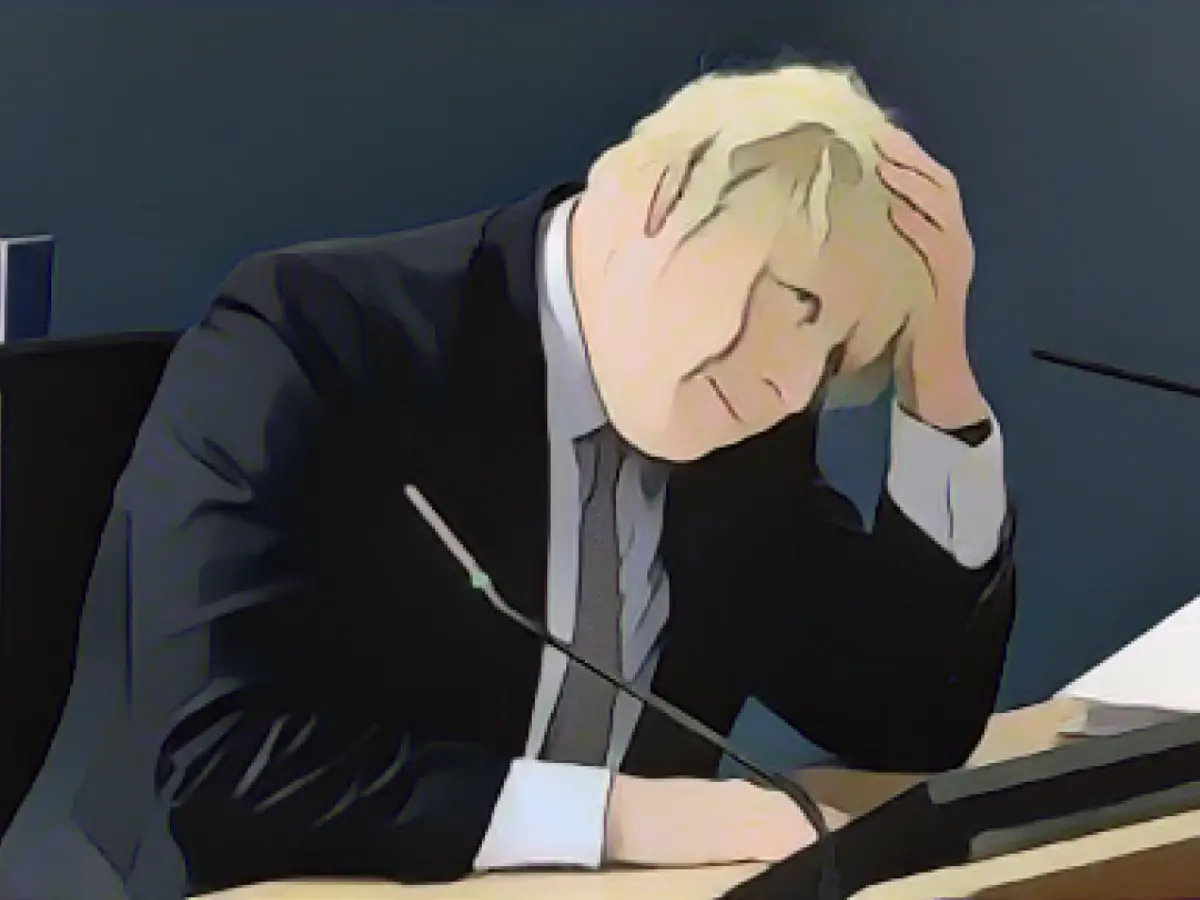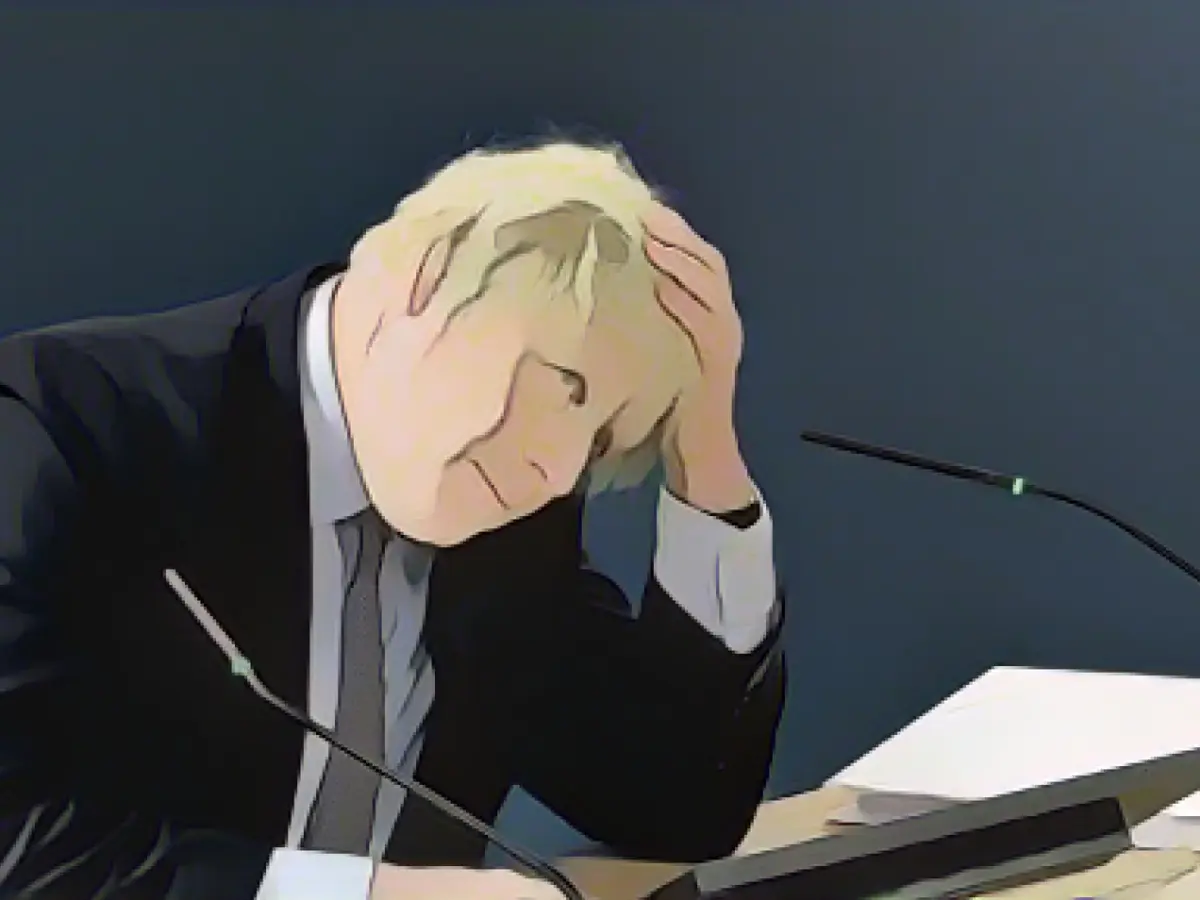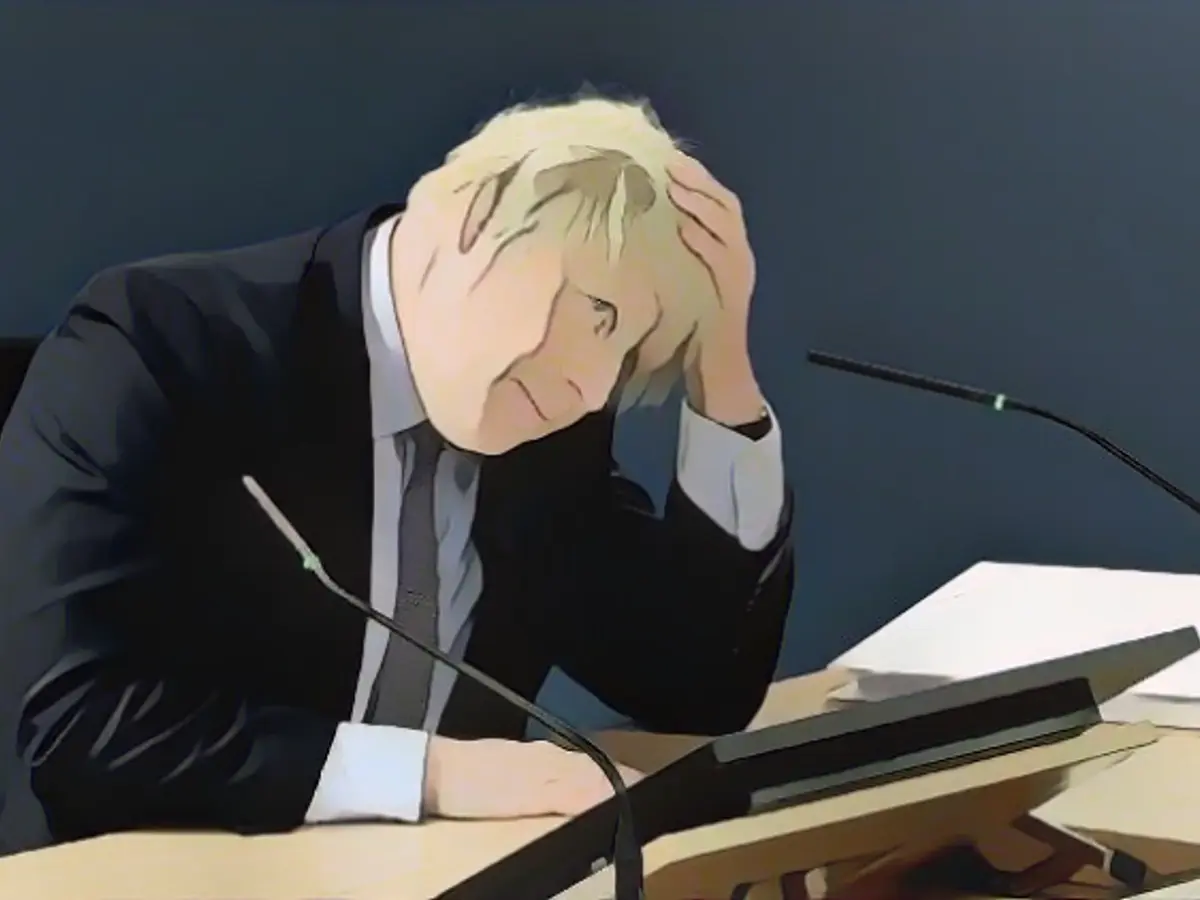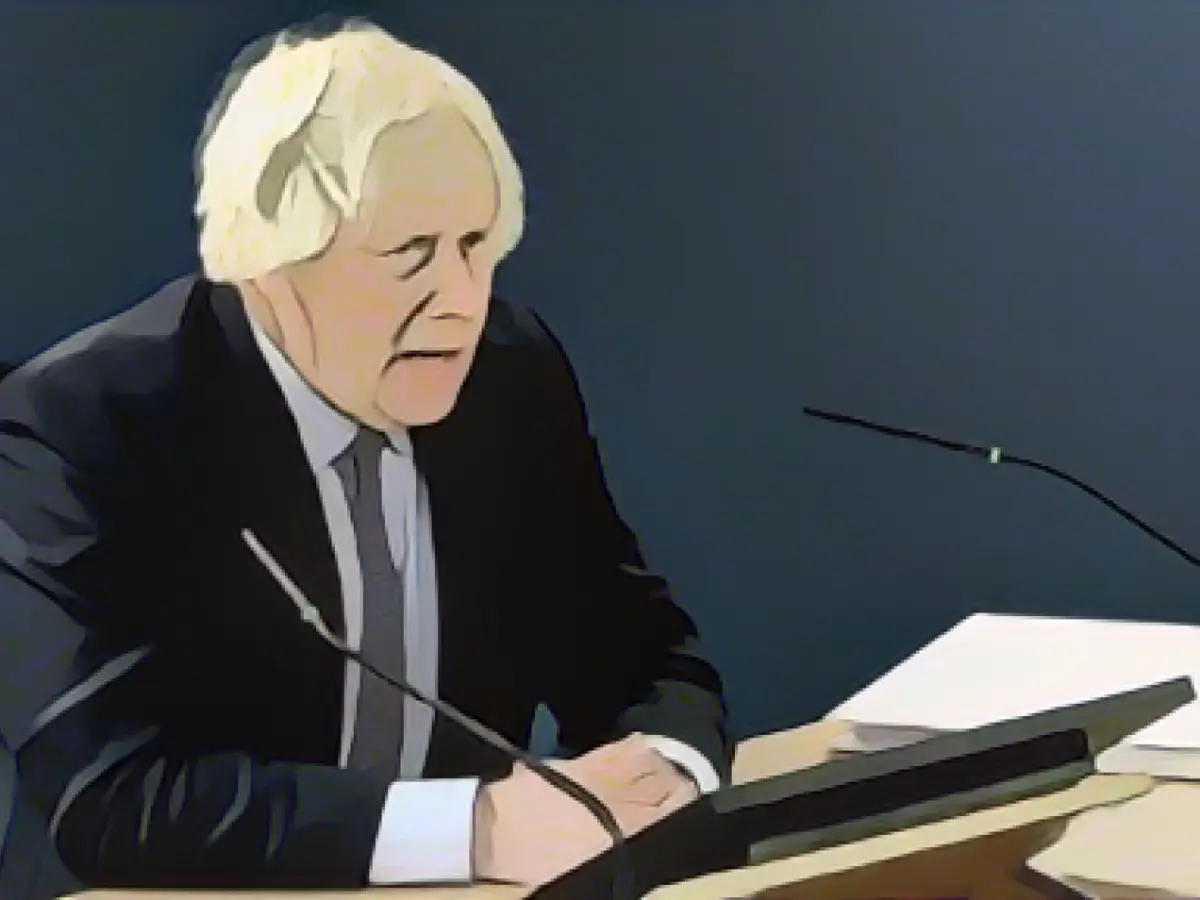Title: The Contentious Coronavirus Inquiry and Boris Johnson's Controversial Leadership
The ongoing coronavirus inquiry in Great Britain has brought former Prime Minister Boris Johnson under intense scrutiny, as high-profile witnesses have painted a less-than-favorable picture of his leadership during the COVID-19 pandemic.
Boris Johnson's Testimony
Johnson's appearance before the independent commission was anything but cordial. Lawyer Hugo Keith pressed him on delayed lockdowns, missed meetings, and potential missteps, yet his responses often lacked clarity and failed to offer a coherent explanation for his actions. Apologizing for the immense suffering brought on by the pandemic, Johnson acknowledged its impact, although some of the victims' family members remained unconvinced by his words.
The Tarnished Legacy of Boris Johnson
Recent research, like the article "A Toxic Defense of a Toxic Legacy? Unpacking Boris Johnson's Evidential Testimony to the UK Covid-19 Inquiry," underscores that Johnson's tenure is marred by toxic behaviors and management practices that harmed his followers and the government's reputation [1].
Witness Statements and Criticism
Previous Health Secretary Sajid Javid and former chief scientific advisor Patrick Vallance testified against Johnson, accusing him of procrastination, delay, and confusion in managing the pandemic. Many critics point out his attitude towards the elderly and vulnerable, asserting that he described COVID-19 as "nature's way of addressing old people" [2].
The explosive WhatsApp messages leaked scandal further revealed a culture of deceit within the government. According to Dominic Cummings, former chief advisor, his cabinet colleagues were "useless fucking pigs" [3].
Shifting Defenses
Johnson has attempted to deflect criticisms, likening the debates under his tenure to those under former Prime Minister Margaret Thatcher. However, the vitriolic language and toxic behaviors depicted in witness statements call this analogy into question.
Ineffective Collaboration
Former Vaccine Tsar Dame Kate Bingham disclosed the destructive inter-departmental conflict and "group think" within the government. She also criticized the reliance on external agencies and management consultancies, which hindered the government's internal expertise [2].
Lack of Foresight
Dame Kate Bingham's testimony also exposed the government's failure to proactively secure and allocate Evusheld, a vital COVID-19 drug essential for protecting clinically vulnerable patients. The choice to prioritize vaccines over more costly treatments revealed the government's lack of decisiveness and empathy [2].
Communication Shortcomings
The inquiry revealed significant communication inconsistencies within the government. Critics attributed these failures to the absence of a direct line to the Prime Minister, resulting in confusion and inefficiencies [2].
Policy Blunders
Certain policy decisions during the pandemic, such as the severely limited allocation of Evusheld, proved detrimental to the health of those most at risk. Witness statements revealed a disregard for the well-being of clinically vulnerable populations, demonstrating a weak and uncaring approach to the crisis [2].
Conclusion
As the inquiry progresses, evidence of Boris Johnson's controversial leadership during the COVID-19 pandemic continues to emerge. His tenure was characterized by poor judgment, inadequate communication, and a focus on cost-cutting over patient care. With the families of over 200,000 victims keenly watching, the inquiry will eventually provide a verdict on whether Johnson's conduct justifies his actions.
Sources
[1] Rutter, J., and T. Warren (2023) "A Toxic Defense of a Toxic Legacy? Unpacking Boris Johnson's Evidential Testimony to the UK Covid-19 Inquiry," King's College London
[2] "Covid-19 Vaccine Tsar highlights Boris Johnson's Blunders," The Guardian (2023) [3] "The Shocking WhatsApp Messages That Bring Down Boris Johnson," Sky News (2023)
[Keywords: Boris Johnson, coronavirus inquiry, COVID-19 leadership, witness statements, toxic leadership, inter-departmental conflict, decision-making, cost-cutting, patient care]
Enrichment Data (Integrated into the Base Article):
- Initial Approach: The Johnson government adopted an initially relaxed stance towards the pandemic, basing its approach on controversial advice from scientific advisors that the best response would be to permit the virus to spread naturally and thus create 'herd immunity' [1].
- Lockdown and Restrictions: Following rising cases and the recognition of the fallacy of the initially proposed approach, the government imposed lockdowns, social distancing requirements, and mask mandates [1].
- Personal Experience: Johnson contracted the virus and experienced severe symptoms, leading to his hospitalization in an intensive care unit. During his tenure, Foreign Secretary Dominic Raab served as acting prime minister [1].
- Easter Message: Johnson thanked the healthcare workers who had saved his life and encouraged Britons to adhere to the public health measures, praising the NHS for its efforts [1].
- Criticisms: Critics accused the Johnson government of responding too slowly to the crisis and being inconsistent with its pandemic measures [2].
- Partygate Scandal: The Johnson government was embroiled in controversy when it was revealed that members of the cabinet and staff attended social gatherings during lockdowns [1].
- Healthcare Workforce: The BMA criticized the government for insufficient protections for healthcare workers, such as shortages of PPE and inadequate testing [2].
- Vaccine Rollout: While the UK successfully developed and deployed vaccines, the BMA noted the challenges of the vaccination rollout, including the impact on staff in older adult care homes and challenges with the vaccine supply chain [2].
- UK Covid-19 Inquiry: The UK Covid-19 Inquiry is examining various aspects of the pandemic response, including the development of vaccines and the implementation of the vaccine rollout program [2].








